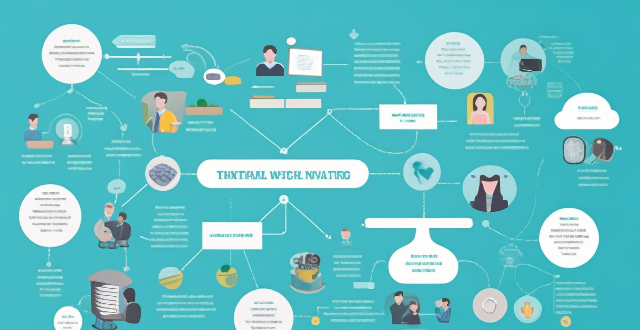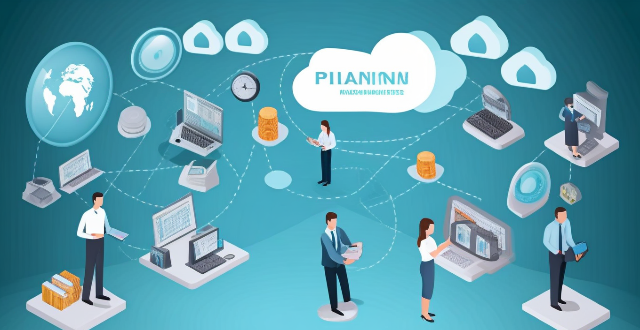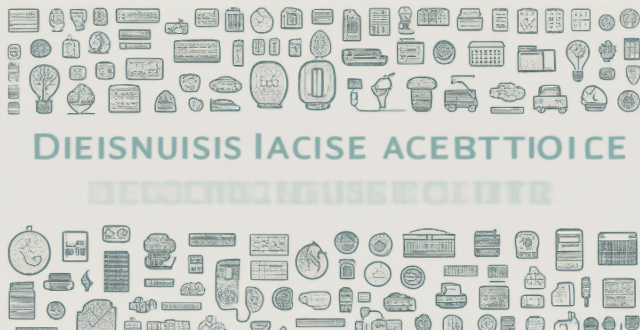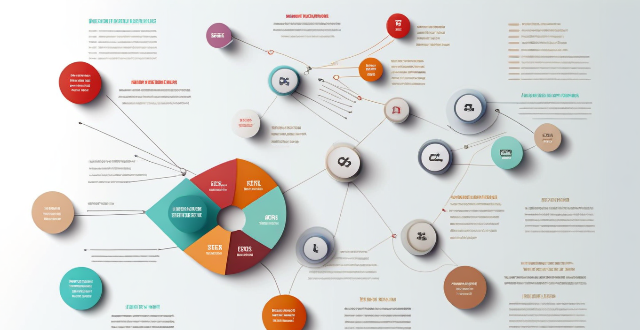Ting Ding

What are the key principles of food hygiene and safety ?
Food hygiene and safety are crucial in preventing foodborne illnesses and ensuring the well-being of consumers. Key principles include personal hygiene such as washing hands thoroughly, covering cuts and sores, avoiding contaminating surfaces, and wearing appropriate clothing; food handling including keeping food at safe temperatures, cooking food thoroughly, using separate utensils, and avoiding reusing cooking oil; sanitation such as cleaning equipment regularly, sanitizing surfaces, and controlling pests; and storage such as storing food properly, refrigerating leftovers promptly, and labeling and dating products. By following these principles, you can help protect yourself and others from foodborne illnesses and enjoy safe, healthy meals.

How can environmental legislation be improved to better protect the planet ?
Environmental legislation is crucial for the planet's health and sustainable development. To improve it, enforcement mechanisms should be strengthened with more funding, stricter penalties, and public participation. Regulations should be updated regularly based on scientific advancements, adopting an interdisciplinary approach. Sustainable practices should be promoted through incentives for green technology, eco-labeling programs, and green procurement policies. Protecting vulnerable ecosystems requires expanding protected areas, funding restoration projects, and strengthening species conservation laws. Integrating climate change mitigation involves carbon pricing, renewable energy targets, and adaptation strategies. International cooperation should be enhanced through global agreements, shared resource management, and technology transfer. Communities should be educated and empowered through environmental education, community-based programs, and capacity building.

What is carbon offsetting ?
Carbon offsetting is a strategy aimed at counteracting the carbon emissions that contribute to global warming by funding projects that reduce or remove an equivalent amount of CO2 from the atmosphere. These projects can range from renewable energy development and reforestation to carbon capture and storage. The process involves calculating one's carbon footprint, choosing an offset project, funding it, and ensuring its effectiveness through monitoring and verification. While carbon offsetting can raise environmental awareness and support sustainable projects, it also faces criticism for potential quality control issues and the risk of being seen as a justification for not directly reducing emissions.

How do I invest in real estate without buying property ?
Real estate investment offers wealth growth opportunities without buying physical property through options like REITs, crowdfunding, syndication, online platforms, and mutual funds/ETFs. These methods provide liquidity, diversification, and passive income potential while avoiding typical challenges of direct property ownership.

What are the ethical considerations in tax planning ?
Tax planning is crucial for financial management but must be done ethically to maintain fairness and integrity. Key considerations include avoiding aggressive tax avoidance, ensuring transparency and honesty in reporting, paying a fair share of taxes, avoiding double standards, considering long-term sustainability, and recognizing the responsibility towards society by supporting public services through taxes.

How can I improve my credit score and maintain good credit history ?
Maintaining a good credit score is vital for securing loans, mortgages, and even some jobs. To improve your credit score and maintain good credit history, consider the following tips: 1. Pay bills on time to avoid late payments that can significantly impact your credit score. 2. Avoid defaulting on loans by contacting the lender to discuss options if you're struggling to make payments. 3. Keep balances low and increase credit limits to lower your utilization rate. 4. Keep old accounts open and space out applications for new credit to maintain a healthy length of credit history. 5. Diversify your types of accounts to show that you can handle different types of credit responsibly. 6. Limit hard inquiries and apply for credit only when necessary. 7. Check your credit report regularly to ensure there are no errors or fraudulent activity dragging down your score. 8. Use credit wisely and monitor your credit score to keep an eye on progress. 9. Educate yourself on how FICO scores work and the factors that influence them to make more informed financial decisions. By following these guidelines, you can establish and maintain a strong credit profile that will serve you well in your financial life.

What strategies can female entrepreneurs use to secure funding for their ventures ?
Female entrepreneurs face unique challenges when it comes to securing funding for their ventures. However, there are several strategies that can be used to increase the chances of success. These include networking and building relationships, developing a solid business plan, leveraging personal networks, seeking out grants and awards, considering crowdfunding, and utilizing online funding platforms. By staying persistent and never giving up, female entrepreneurs can secure the funding they need to bring their dreams to life.

What challenges are faced in achieving equal vaccine access ?
The text discusses the challenges in achieving equal vaccine access, which include global inequality, limited manufacturing capacity, logistical hurdles, information gap, and financial constraints. These challenges are influenced by political, economic, geographical, and cultural factors, as well as infrastructure deficits and funding shortfalls. To address these challenges, coordinated international efforts, increased funding, improved infrastructure, effective communication strategies, and equitable distribution mechanisms are needed.

How can vaccine equity be achieved globally ?
Vaccine equity is crucial for global health, but challenges like funding shortages and misinformation hinder progress. Increasing funding, improving infrastructure, promoting education, and encouraging international cooperation can help achieve vaccine equity globally.

What is zero-based budgeting and how does it work ?
Zero-based budgeting (ZBB) is a method that requires justification for all expenses and revenues each period, starting from zero. It involves identifying revenue streams, determining expenses, prioritizing them, allocating funds, and monitoring/adjusting the budget. Advantages include increased efficiency, improved cost control, and enhanced planning. Disadvantages are its time-consuming nature, complexity, and potential for underfunding essential programs. Organizations should consider these factors before implementing ZBB.

What role does investing play in achieving financial freedom ?
Investing plays a crucial role in achieving financial freedom by growing wealth, diversifying portfolios, and protecting against inflation. Strategies include starting early, making consistent contributions, adopting a long-term perspective, and managing risk effectively.

How can I add a personal touch to my Thanksgiving celebration ?
How to add a personal touch to your Thanksgiving celebration, including decorating with meaningful items, personalizing table settings, cooking or baking with love, incorporating family traditions, creating a cozy atmosphere, and showing gratitude.

How can teachers integrate climate change issues into their lesson plans ?
Teachers can integrate climate change into lessons by starting with basics, connecting it to real-world situations, incorporating data and research, encouraging critical thinking, promoting environmental stewardship, and adopting cross-curricular approaches.

Are celebrity-backed startups more likely to receive funding from venture capitalists ?
Celebrity-backed startups can benefit from increased visibility and trust, potentially attracting venture capital funding. However, VCs consider various factors such as business model and team experience, and celebrity endorsement is not a guarantee of success or funding. Success stories like Will Smith's investment in Just Water show the potential advantages, but there are also failures where celebrity involvement did not ensure success. Celebrity backing should be seen as one part of a larger puzzle for VCs.

How do I properly use and maintain electrical equipment ?
Electrical equipment requires proper use and maintenance to ensure safety, efficiency, and longevity. Key tips include reading the manual, inspecting before use, avoiding overloading, keeping away from water, cleaning regularly, checking wiring, replacing parts as needed, storing properly, unplugging when not in use, using surge protectors, and avoiding DIY repairs for significant issues. Following these guidelines helps extend the lifespan of electrical equipment and minimizes risks associated with their use.

What safety precautions should be followed in kitchens to avoid fires ?
To prevent kitchen fires, essential safety measures include keeping flammable materials away from heat sources, cleaning up spills immediately, not leaving cooking unattended, installing working smoke alarms, and having a fire extinguisher accessible. Cooking safety tips involve using appropriate cookware, watching pot lids, avoiding overfilling pots with oil, and setting timers for cooking. Electrical appliance safety requires unplugging unused appliances, inspecting cords regularly, and avoiding damaged plugs or outlets. Gas stove safety includes checking for gas leaks, keeping flammable objects away from burners, and having gas lines professionally inspected annually. Maintenance and cleanliness are also crucial, such as cleaning range hood filters, ovens, and disposing of grease properly.

How can I maintain a professional appearance while staying comfortable throughout the day ?
Maintaining a professional appearance while staying comfortable throughout the day is crucial in the workplace. Here are some tips: 1. Dress appropriately by choosing well-fitted clothes that are appropriate for your job and industry, avoiding overly casual or revealing clothing, and sticking to neutral colors like black, gray, navy, or beige. Pay attention to grooming by keeping your hair neat and tidy, making sure your facial hair is well-groomed if you choose to wear it, and applying deodorant and keeping your breath fresh with mints or gum. 2. Invest in quality footwear by wearing comfortable shoes that are supportive, such as loafers or low heels, avoiding high heels or shoes that pinch your toes, and breaking in new shoes gradually by wearing them around the house before wearing them to work. Take care of your feet by wearing socks or stockings that wick away moisture and prevent blisters, using shoe inserts or insoles for extra cushioning and support, and giving your feet a break by taking off your shoes during lunch breaks or when you're at your desk. 3. Stay hydrated and nourished by drinking plenty of water and bringing a water bottle to work to refill it throughout the day, avoiding sugary drinks and caffeine which can dehydrate you. Snack smartly by packing healthy snacks like fruits, nuts, or granola bars to avoid midday cravings for unhealthy foods, and eating small meals throughout the day instead of three large ones to maintain energy levels. 4. Take breaks and stretch by getting up from your desk every hour or so and taking a short walk or stretch, using your lunch break to go for a walk outside or do some light exercise. Practice good posture by sitting up straight with your feet flat on the floor and your shoulders relaxed, using a chair with good back support and adjusting the height if necessary, and taking breaks from staring at a computer screen by looking away for a few seconds every 20 minutes.

How does climate finance contribute to the implementation of the Paris Agreement goals ?
Climate finance is a critical enabler for countries to meet their Paris Agreement commitments. It encompasses public and private investments, grants, and other financial instruments aimed at supporting low-carbon development and adaptation measures. Key components include public funds, private sector investments, multilateral and bilateral funding, and carbon markets. Climate finance supports the Paris Agreement goals by funding renewable energy projects, energy efficiency initiatives, research and development, forest conservation, infrastructure resilience, agricultural practices, health systems, technical assistance, capacity building, and education and awareness programs. While challenges exist in ensuring adequate funding levels and equitable distribution of resources, opportunities lie in innovative financing mechanisms, private sector engagement, and technology utilization for transparency and effectiveness.

What are some alternative sources of funding for startups besides venture capital ?
Startups have various funding options beyond venture capital, including angel investors, crowdfunding, friends and family, bank loans, government grants, strategic partnerships, and bootstrapping. Each method has its advantages and drawbacks, so startups should carefully consider their options based on their specific needs and goals.

What are some common mistakes to avoid when designing an infographic ?
Designing an infographic is a great way to present complex information in a visually appealing and easily understandable format. However, there are some common mistakes that designers often make when creating infographics. These include overcrowding the infographic with too much information, using too many colors or fonts, lacking hierarchy, ignoring white space, incorrect use of data visualization techniques, and neglecting branding. To avoid these mistakes, designers should aim to simplify their design, use a limited color palette and stick to a few fonts that complement each other well, create clear hierarchy within their designs, use white space effectively, ensure appropriate use of data visualization techniques, and include branding elements that align with their company's overall brand identity.

How long does it typically take to secure funding from a venture capital firm ?
Securing funding from a venture capital firm involves several stages, including preparation, initial meetings and screening, negotiation and terms sheets, and closing and funding. The timeframe for each stage can vary depending on factors such as the industry, company growth stage, VC firm investment criteria, and market conditions. The preparation phase involves researching and identifying suitable VC firms, preparing pitch materials, and networking and outreach. The initial meetings and screening stage includes first meetings with VC firms and due diligence and screening. The negotiation and terms sheets phase involves investment terms negotiation and signing the terms sheet. Finally, the closing and funding stage includes legal and financial due diligence and receiving funding and post-investment support.

How can financial education help prevent debt ?
Financial education is crucial in preventing debt by empowering individuals with the knowledge and skills to make informed financial decisions. It covers understanding personal finance, smart borrowing practices, avoiding common pitfalls, and promoting healthy financial habits. By learning budgeting, saving, investing, credit score management, loan shopping, debt consolidation, and avoiding overspending, predatory lending, and credit card traps, individuals can reduce their risk of accumulating debt and enjoy greater financial stability and independence.

Are there alternatives to taking out a student loan for college expenses ?
There are several alternatives to student loans for covering college expenses, including scholarships and grants, work-study programs, employer tuition assistance, military benefits, and crowdfunding and community support. Scholarships and grants are typically awarded based on academic merit or financial need, while work-study programs allow students to earn money through part-time jobs. Employer tuition assistance programs may cover all or a portion of tuition costs, and serving in the military can provide access to educational benefits like the GI Bill. Crowdfunding platforms and community organizations can also provide financial support for students in need.